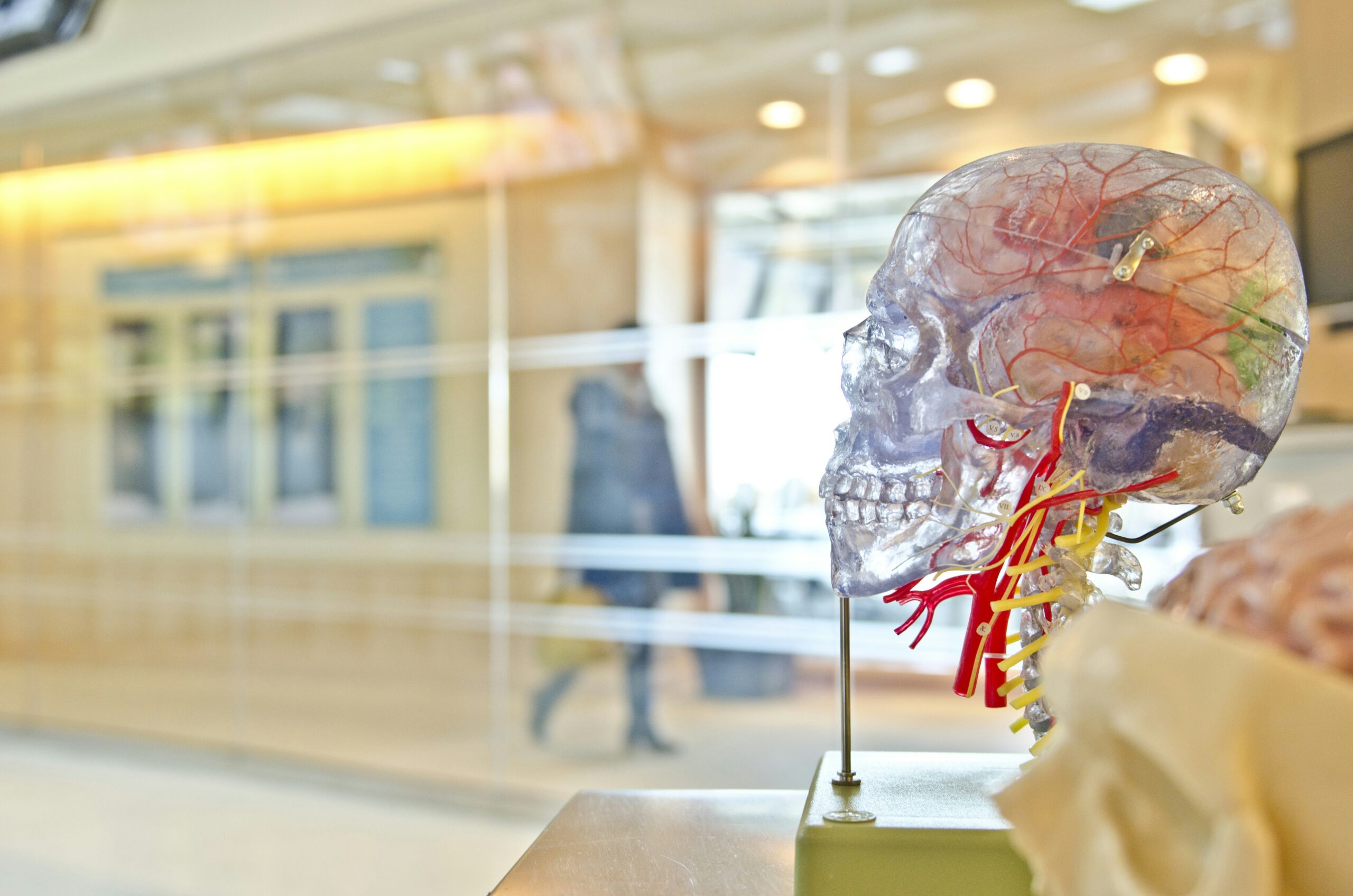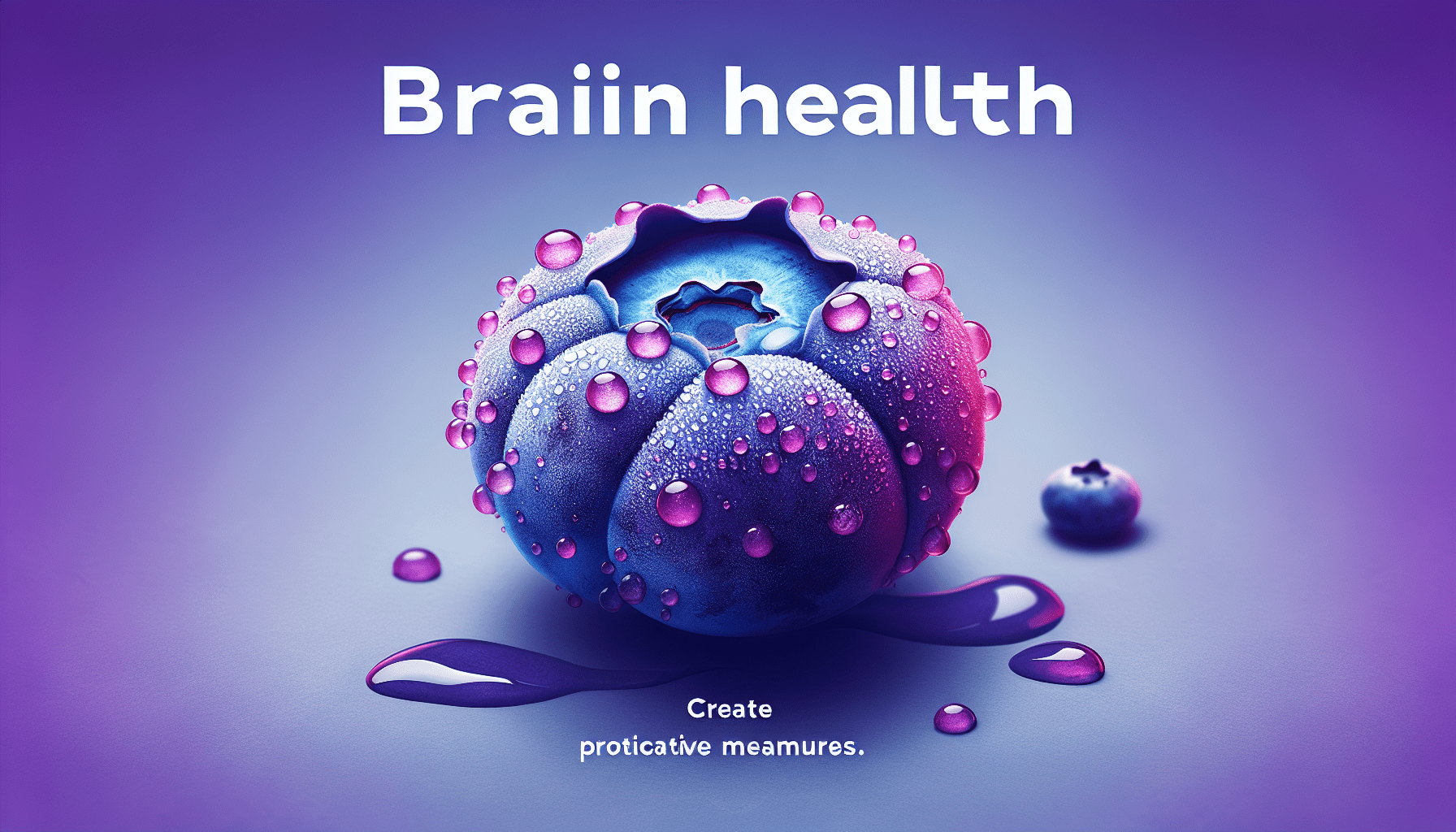When it comes to taking care of your brain health, the question of when to begin being proactive might be on your mind. Well, look no further, because we've got some insights for you. In this article, we'll explore the importance of taking action for brain health and provide you with some guidance on when to get started. Whether you're in your twenties or your sixties, there are proactive steps you can take to optimize your brain health. So, let's dive in and discover the best time to begin this crucial journey.

Understanding Brain Health
Defining brain health
Brain health refers to the overall well-being and optimal functioning of the brain. It encompasses various factors such as cognitive abilities, emotional well-being, memory, and the ability to learn and adapt. A healthy brain enables individuals to think clearly, make sound decisions, maintain stable emotions, and have good overall cognitive function.
Importance of maintaining brain health
Maintaining brain health is crucial for overall well-being and quality of life. A healthy brain supports cognitive abilities and helps in everyday tasks such as problem-solving, decision-making, and memory recall. It also contributes to emotional stability, resilience, and the ability to manage stress effectively. Additionally, a healthy brain plays a vital role in preventing cognitive decline and various age-related neurodegenerative disorders.
Identifying factors affecting brain health
Several factors can affect brain health. Aging is a natural process that impacts brain health, but other lifestyle elements such as nutrition, exercise, mental stimulation, and sleep patterns also play significant roles. It is important to understand these factors and take proactive steps to optimize brain health throughout different stages of life.
Aging and Brain Health
How aging impacts brain health
As we age, it is common to experience changes in brain health. The brain undergoes natural structural and functional alterations, including a gradual decline in cognitive abilities. Some common age-related changes include a decrease in processing speed, memory decline, and reduced attention span. However, it is important to note that normal aging does not necessarily lead to severe cognitive impairment or dementia.
Understanding the process of cognitive decline
Cognitive decline is often associated with aging. This process involves a gradual deterioration in cognitive abilities, such as thinking, reasoning, memory, and learning. While cognitive decline is a normal part of aging, extensive decline may lead to mild cognitive impairment (MCI) or even Alzheimer's disease. Therefore, it is essential to identify the early signs of cognitive decline and take appropriate measures to maintain brain health.
Identifying early signs of aging brain
Early signs of an aging brain can vary from person to person, but some common indicators include forgetfulness, difficulty concentrating, decreased problem-solving abilities, and a slower processing speed. It is crucial to pay attention to these signs and seek medical advice if they interfere with daily life activities. Early detection and intervention can help slow down the progression of cognitive decline and improve overall brain health.
Starting Early: In Childhood and Adolescence
Importance of brain health in the formative years
The early years, including childhood and adolescence, are critical for brain development. The brain undergoes significant changes during these periods, and nurturing brain health becomes essential for optimal growth and cognitive abilities. A healthy brain in formative years sets the foundation for lifelong learning, problem-solving, and emotional well-being.
Ways to nurture brain health during childhood and adolescence
Parents, caregivers, and educators play a vital role in promoting brain health during childhood and adolescence. Encouraging activities that stimulate cognitive function, such as reading, puzzles, and creative play, can enhance brain development. Providing a balanced diet rich in nutrients, fostering a supportive and stimulating environment, and promoting physical activity also contribute to brain health during these crucial years.
Preventing possible cognitive disorders
While it may be challenging to prevent all cognitive disorders, actions taken during childhood and adolescence can significantly reduce the risk. Encouraging a healthy lifestyle, including a brain-healthy diet, regular physical activity, and mental stimulation, can help prevent or delay the onset of cognitive disorders like Alzheimer's disease in later life. Early intervention and support systems are key components in preventing and managing cognitive disorders.
Young Adult and Brain Health
Brain health during the twenties and thirties
During young adulthood, the brain is generally at its peak in terms of cognitive abilities. However, lifestyle choices during this phase can impact brain health in the long run. Maintaining healthy habits such as a balanced diet, regular exercise, quality sleep, and engaging in mentally stimulating activities are crucial for preserving brain health during the twenties and thirties.
Staying proactive: maintaining cognitive function in young adulthood
It is essential to stay proactive during young adulthood to maintain cognitive function and promote brain health. Engaging in activities that challenge the brain, such as learning a new skill, pursuing hobbies, or participating in mentally stimulating games, can stimulate cognitive function and enhance neuroplasticity. Additionally, maintaining strong social connections and managing stress effectively contribute to brain health during this stage.
Preventing early onset of cognitive disorders
While cognitive disorders are more commonly associated with older age, certain conditions like early-onset dementia can manifest in younger adults. Taking preventive measures such as adopting a brain-healthy lifestyle, seeking mental health support when needed, and staying vigilant about any cognitive changes can aid in the early detection and prevention of cognitive disorders in young adulthood.

Middle Age and Brain Health: The Crucial Time
Reasons for beginning brain health care in middle age
Middle age, typically starting around the forties or fifties, is a crucial time to prioritize brain health. As individuals age, the risk of cognitive decline and neurodegenerative disorders increases. Proactively taking care of brain health during middle age can help delay or prevent the onset of cognitive decline, maximize cognitive function, and ensure a better quality of life as one grows older.
Brain health maintenance strategies for middle-aged individuals
Middle-aged individuals can adopt various strategies to maintain brain health. Regular physical exercise has been linked to improved cognitive function and reduced risk of cognitive decline. Healthy eating habits that include a variety of brain-boosting nutrients, such as omega-3 fatty acids and antioxidants, can also support brain health. Additionally, staying mentally and socially active, managing stress, and getting enough quality sleep are vital in maintaining brain health during middle age.
Old Age and Brain Health
Why old age is often associated with cognitive decline
Old age is often associated with cognitive decline due to the natural aging process and an increased risk of neurodegenerative disorders. Biological changes, including brain shrinkage and decreased blood flow, can contribute to memory loss, slower cognitive processing, and decreased overall cognitive function. However, maintaining a healthy brain and taking appropriate measures can help minimize the impact of cognitive decline in old age.
Maintaining brain health in advanced age
Maintaining brain health in advanced age requires a holistic approach. Engaging in mentally stimulating activities, staying socially connected, and maintaining an active lifestyle can help preserve cognitive abilities. Regular medical check-ups, managing chronic health conditions, and adhering to brain-healthy practices, including a nutrient-rich diet and quality sleep, are essential in ensuring optimal brain health as one grows older.
Dealing with cognitive disorders
While maintaining brain health in old age is important, coping with cognitive disorders may become a reality for some individuals. In such cases, it is crucial to seek professional help, engage in cognitive therapies, and utilize support systems available for individuals and their caregivers. Early diagnosis and proper management can help improve the quality of life for those dealing with cognitive disorders.
Nutrition and Brain Health
Role of nutrition in brain health
Proper nutrition plays a significant role in maintaining brain health. The brain requires a variety of nutrients, including omega-3 fatty acids, antioxidants, vitamins, and minerals, to function optimally. A well-balanced and nutrient-rich diet supports brain health, enhances cognitive function, and reduces the risk of neurodegenerative disorders.
Brain healthy diet
A brain-healthy diet mainly consists of whole foods that provide essential nutrients for brain function. Incorporating foods such as fatty fish (rich in omega-3 fatty acids), colorful fruits and vegetables (high in antioxidants), nuts and seeds, whole grains, and lean proteins can support brain health. Limiting processed foods, saturated fats, and refined sugars is also important for maintaining brain health.
Preventive action through diet
Adopting a brain-healthy diet early in life and maintaining it throughout different stages can have long-term benefits. A nutritious diet can support cognitive function, protect against age-related cognitive decline, and reduce the risk of developing cognitive disorders. Making conscious dietary choices and seeking guidance from healthcare professionals can help individuals prioritize brain health through their diet.
Exercise and Brain Health
Importance of physical activity for brain health
Physical activity has been shown to have numerous benefits for brain health. Regular exercise increases blood flow to the brain, stimulates the release of mood-enhancing chemicals, and promotes the growth of brain cells. It can improve cognitive function, memory, and overall mental well-being.
Recommended fitness routines for cognitive function
Engaging in a combination of aerobic exercises, strength training, and activities that challenge coordination and balance can provide optimal benefits for brain health. Activities such as brisk walking, cycling, swimming, dancing, and yoga are excellent choices. Aim for at least 150 minutes of moderate-intensity aerobic exercise or 75 minutes of vigorous-intensity exercise per week, along with strength training exercises twice a week.

Mental Activities and Brain Health
Role of mental stimulation in brain health
Mental stimulation is crucial for maintaining and enhancing brain health. Engaging in activities that challenge the brain, such as puzzles, reading, learning a new language or musical instrument, and playing strategic games, helps promote cognitive function, memory retention, and neuroplasticity.
Suggested mental exercises for all ages
There are numerous mental exercises that can be beneficial for brain health at any age. Crossword puzzles, Sudoku, memory games, word associations, and brain training apps are popular choices. Learning new skills, participating in activities that require problem-solving and critical thinking, and staying intellectually curious are also excellent ways to stimulate the brain and promote mental agility.
Sleep and Brain Health
Impact of sleep patterns on brain health
Getting enough quality sleep is essential for optimal brain health. During sleep, the brain consolidates memories, repairs and rejuvenates itself, and removes waste products. Chronic lack of sleep or poor sleep quality can impair cognitive function, memory, emotional regulation, and overall brain health.
Coping with sleep disturbance and maintaining brain health
Developing good sleep hygiene practices can help cope with sleep disturbances and maintain brain health. Establishing a consistent sleep schedule, creating a sleep-friendly environment, limiting screen time before bed, practicing relaxation techniques, and avoiding caffeine and stimulating activities close to bedtime are some measures that can promote better sleep. If sleep disturbances persist, it is important to consult a healthcare professional for further evaluation and guidance.
Taking proactive steps to prioritize brain health can have long-lasting benefits. It is never too early or too late to start fostering a healthy brain through lifestyle choices, mental stimulation, and preventive actions. By understanding the importance of brain health and implementing strategies to maintain and enhance cognitive abilities, individuals can lead fulfilling lives while optimizing their brain health.



